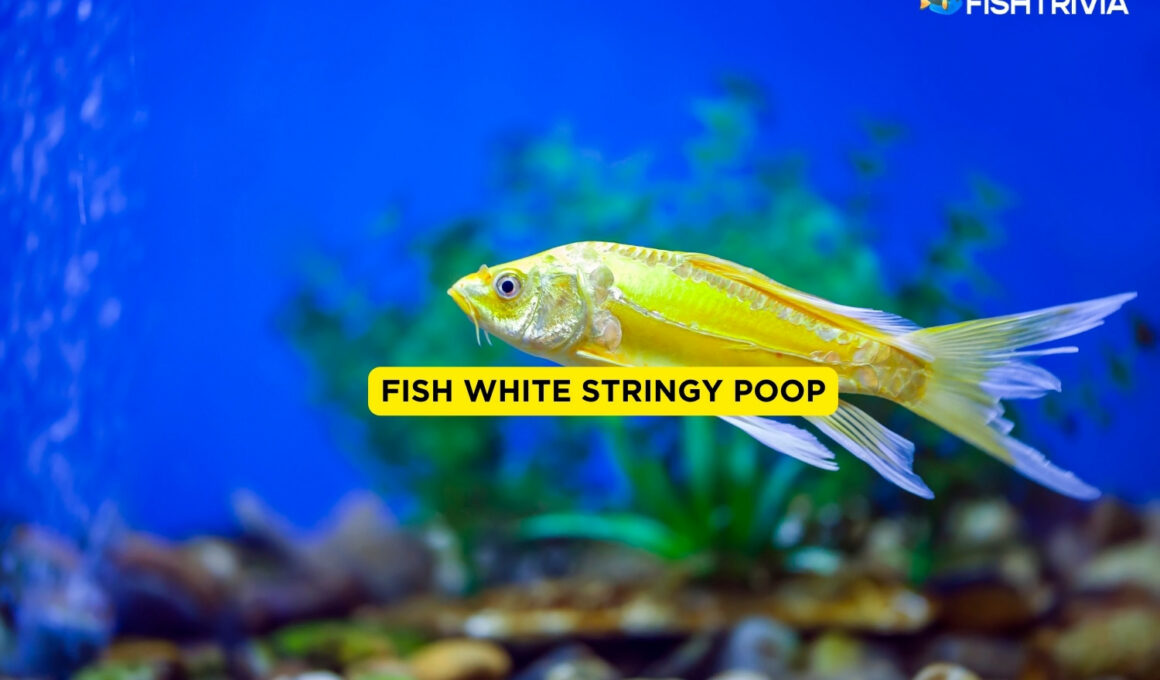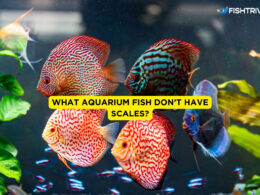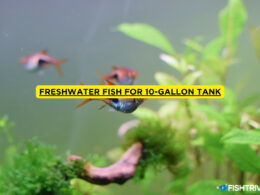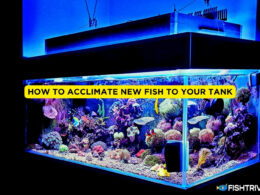In this article Show
As a seasoned fish keeper, I understand the intricacies of maintaining a healthy home aquarium. One aspect that often raises concern among fellow enthusiasts is noticing white stringy poop in their fish.
This symptom, while common, can be a sign of underlying health issues that shouldn’t be overlooked. In this post, we will explore what white stringy excrement in fish indicates, its causes, and how to address it effectively.
My aim is to present this information in a clear, straightforward manner, making it accessible for both beginners and experienced fish keepers. Understanding these signs is crucial in ensuring the well-being of your aquatic pets. So, let’s get right into understanding this important aspect of fish health.
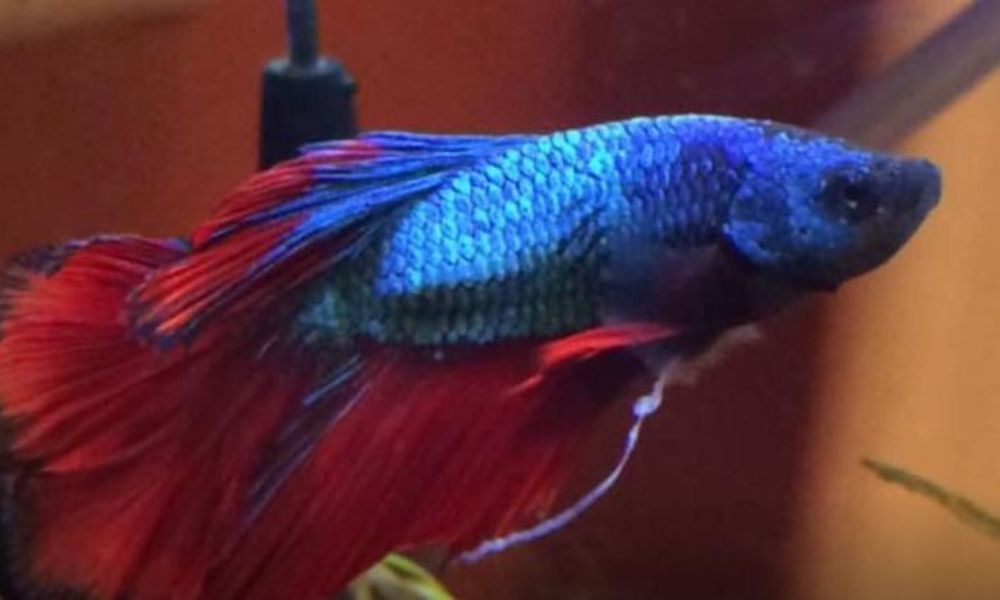
Common Causes of White Stringy Poop in Fish
Identifying the common causes of white stringy poop in fish is crucial for any aquarium hobbyist. This condition is not merely a cosmetic issue; it’s a sign of underlying health problems that need to be addressed. Here are the primary causes:
1. Parasitic Infections
Parasites are a prevalent cause of white stringy poop in fish. Fish parasites, like nematodes and protozoans, invade the digestive tract, leading to malabsorption and mucus-laden feces.
These parasites can be introduced through infected new fish or contaminated food. Regular observation and quarantine practices are essential to prevent the spread of these parasites within your aquarium.
2. Bacterial Infections
Bacterial diseases in fish, such as intestinal infections, can result in abnormal feces. Poor water quality, overstocking, and stress weaken the fish’s immune system, making them more susceptible to these infections. Maintaining clean water and a stress-free environment is key to preventing bacterial diseases.
3. Dietary Issues
Diet plays a significant role in fish health. Fish diet problems, including imbalanced nutrition or overfeeding, can cause digestive issues reflected in their waste. A diet lacking in fiber or essential nutrients often leads to constipation or indigestion, visible as white, stringy poop. It’s important to provide a varied and balanced diet suitable for your fish species.
4. Stress
Environmental stress, often overlooked, is a significant factor. Stressful conditions like rapid changes in water parameters, aggressive tank mates, or inadequate hiding spaces can lead to digestive problems in fish. Stress management through proper tank setup and regular monitoring is crucial.
5. Internal Blockages
Sometimes, the issue could be physical blockages due to the ingestion of indigestible material like substrate particles or decorations. This leads to constipation, making it difficult for fish to pass normal feces.
Treatment and Prevention
Effectively treating and preventing the causes of white stringy poop in fish is essential for maintaining a healthy aquarium. Here’s how you can tackle this issue:
1. Medication for Parasitic and Bacterial Infections
- When fish parasites or bacterial infections are the culprits, appropriate medication is crucial. Consult with a veterinarian to determine the best course of treatment, which may include antiparasitic or antibiotic medications specifically designed for aquatic use.
- Quarantine affected fish during treatment to prevent the spread of the disease to other aquarium inhabitants.
2. Dietary Adjustments
- Addressing fish diet problems is a key step. Ensure a balanced diet that’s appropriate for the specific species of fish you are keeping. This often means a mix of plant-based and protein-rich foods.
- Avoid overfeeding and ensure your fish receive a varied diet to prevent digestive issues. Incorporating fiber-rich food can help prevent constipation.
3. Improving Water Quality
- Regular water changes are essential in maintaining optimal aquarium conditions. Keep the water clean and free of waste, which helps in preventing bacterial growth and maintaining a healthy environment.
- Monitor water parameters like pH, ammonia, nitrite, and nitrate levels regularly. Sudden changes in these parameters can stress your fish, leading to health problems.
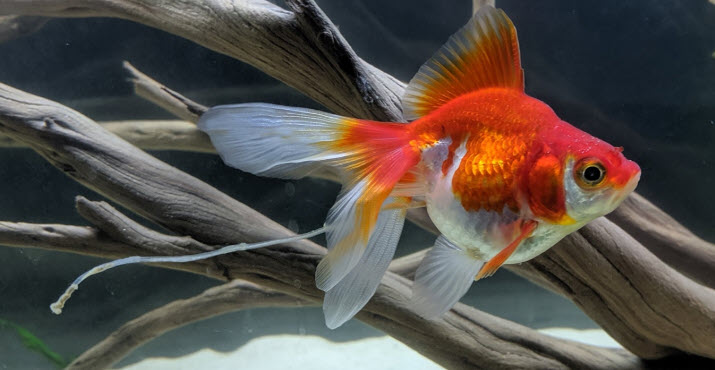
4. Environmental Management
- Ensure your aquarium setup matches the needs of your fish. This includes appropriate tank size, temperature, filtration, and the presence of hiding places.
- Manage the tank population to avoid overcrowding, which can lead to stress and increased waste, deteriorating water quality.
5. Stress Reduction
- Minimize stressors by providing a stable environment. Avoid sudden changes in lighting, temperature, or tank decorations.
- Introduce new fish gradually and with proper acclimatization to prevent stress and the introduction of diseases.
6. Regular Monitoring and Preventative Care
Keep a regular check on your fish’s behavior and physical appearance for any signs of illness.
Quarantine new fish before introducing them to your main tank to prevent the spread of potential diseases.
When to Consult a Veterinarian
Knowing when to seek professional help for fish diseases is an essential part of responsible aquarium care.
While many minor issues can be managed at home, there are certain situations where the expertise of an aquatic veterinarian is invaluable. Here are some indicators that it’s time to seek expert advice on fish care:
1. Persistent Symptoms Despite Treatment
If you’ve tried standard treatments for common ailments like white stringy poop, but the symptoms persist or worsen, this is a clear sign to consult a veterinarian. Persistent health issues may indicate a more serious underlying condition that requires professional diagnosis and treatment.
2. Multiple Fish Affected
When multiple fish in your tank exhibit similar symptoms, such as unusual poop, lethargy, or loss of appetite, it’s a strong indication of a widespread problem in the aquarium. An aquatic veterinarian can help identify the root cause and suggest effective treatments.
3. Unidentifiable Symptoms
If your fish are showing symptoms that you cannot identify or match with common fish diseases, seeking professional help is advisable. Aquatic veterinarians have the knowledge and tools to diagnose and treat complex health issues in fish.
4. Severe Symptoms
Signs of severe distress in fish, such as difficulty breathing, extreme lethargy, or significant changes in behavior or appearance, require immediate attention from a professional. These symptoms can quickly become life-threatening if not addressed promptly.
5. Advice on Advanced Treatments
Certain conditions may require treatments beyond over-the-counter medications, such as specific antibiotics or complex procedures. In these cases, only a qualified aquatic veterinarian can administer the appropriate care.
6. Preventative Health Checks
Regular health checks by a veterinarian can be a proactive approach to maintaining the health of your fish. They can offer valuable insights and preventative measures tailored to your specific aquarium setup and fish species.
In summary, recognizing when to seek the expertise of an aquatic veterinarian is crucial in ensuring the health and well-being of your fish. Expert advice on fish care is not just about treating diseases but also about understanding the unique needs of your aquatic pets and maintaining a healthy environment for them.






